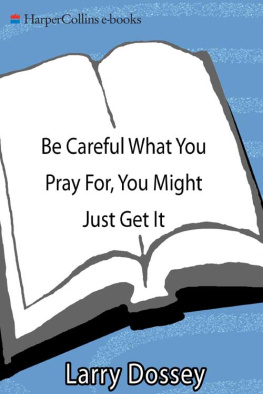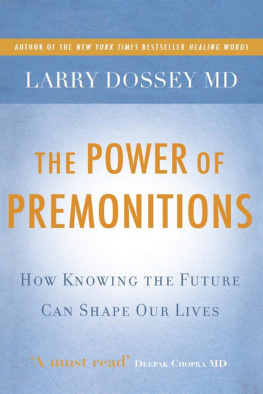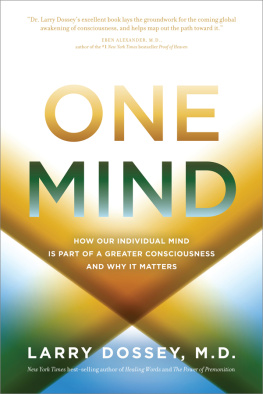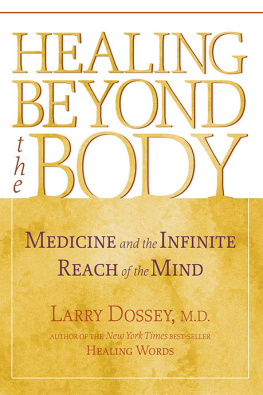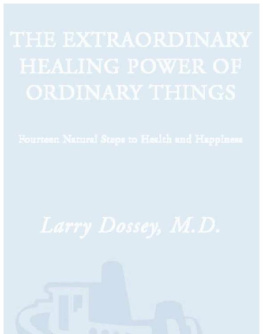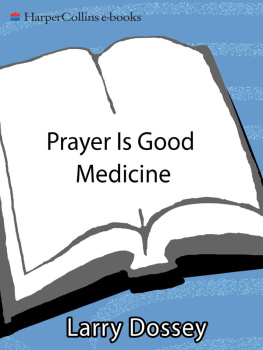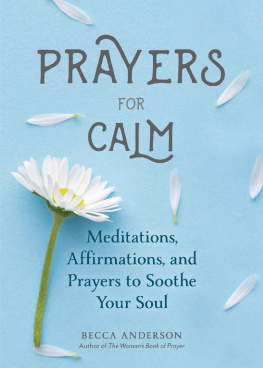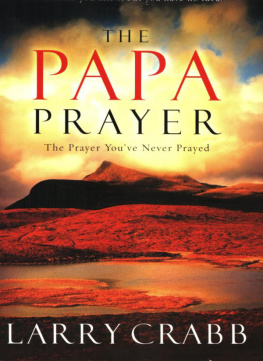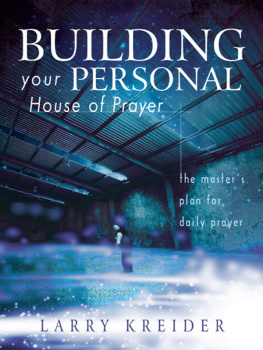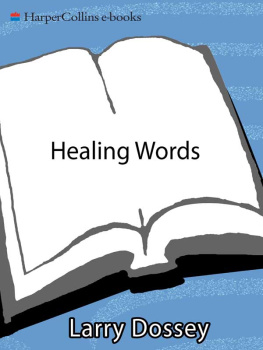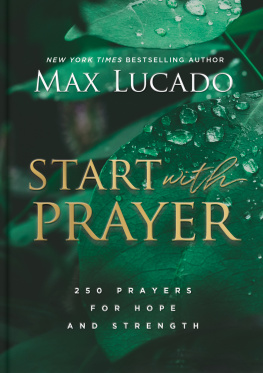The statement to which I am prepared to attach my name is this: that, conjoined with the rubbish of much ignorance and some deplorable folly and fraud, there is a body of well-established facts, beyond denial and outside any philosophical explanation; which facts promise to open a new world of human enquiry and experience, are in the highest degree interesting, and tend to elevate ideas of the continuity of life and to reconcile, perhaps, the materialist and metaphysician.
T HERE ARE SORCERERS AMONG US . They are mothers and fathers, businesspeople and physicians, our friends and neighbors next-door. They are people who go to church on Sundaysand who pray.
If sorcerer sounds like too strong a term, consider a 1994 Gallup poll which found that 5 percent of Americans have prayed for harm to come to others. They are just the one-in-twenty who will admit it; the actual prevalence of using prayer to hurt others is undoubtedly much greater. What is the difference between a prayer to harm others and the curse of a sorcerer?
I began seriously to explore prayers potential for harm shortly after the publication of my book Healing Words in 1993, in which I discussed a variety of scientific experiments that strongly suggest that the effects of prayer are real. Most readers responded warmly to this information, grateful to discover that their belief in prayer could be grounded in science. A small minority, however, wrote vehement letters to me condemning the prayer experiments as heresy, blasphemy, and sin. The researchers, they said, were trying to test God and attempting to set a trap for the Almighty.
A few angry believers vowed to pray that I would see things the right waytheir way. At first I was happy for all the attentionthe book became a best-seller. I was grateful that others would be willing actually to pray for me, and I responded with letters of my own, in which I thanked them for their concern and for their prayers. Then I began to think more deeply about the prayers they were offering. To me, many of them felt like attempts to turn my life upside down, to force me to become someone I was not. The pray-ers, I felt, wanted radically to rearrange my thinking, change my behaviors, and install their views in place of my own. Some of these prayers appeared indistinguishable from curses and hexesattempts to control the thought and behavior of a victim against his or her will.
Paradoxically, the pray-ers claimed to be acting solely out of love and concern. Perhaps they were, but their prayers didnt feel compassionate, and their words didnt sound loving, and eventually I found myself shrinking from this brand of prayer.
As a result of Healing Words, opportunities arose to discuss prayer with audiences around the country. Almost invariably someone would ask, If there is evidence that prayer can help, is there proof that it can harm? The response of audiences to this question was fascinating. The questioner usually drew disapproving looks, as if he or she had entered forbidden territory.
We dont fully trust prayer, perhaps because it invokes powers that we feel cannot be understood and controlled. Our ambivalence toward prayer is embedded in our language. For instance, our word deprecate, meaning to belittle someone, is related to the Latin root of prayer, precarius. Mythologist Karl Kernyi points out in his book, The Gods of the Greeks, that the name of the Greek god of war, Ares, sounded like ara'curse'although, indeed this word also means prayerand was almost another name for war. Prayer, therefore, has long seemed connected with violence and harm.
The fear of prayer often erupts even when prayer is used benevolently, as was the case at an upscale mental health facility in New England. A psychotherapist was summoned by the clinic director to explain why her patients were recovering and being discharged earlier than the patients of other therapists. Why are your patients getting well faster? What are you doing thats different? he inquired. When she revealed that she prayed for her patients and that she felt this might account for the differences in clinical outcome, an urgent meeting of the clinic staff was called to discuss the situation. Everyone was extremely nervous about this highly controversial therapy. As a result, she was commanded to discontinue praying, because it gave her patients an unfair advantage.
Florence Nightingale, the founder of modern nursing, was a deeply spiritual woman who was concerned about the potential of prayer to manipulate others. The excellence of God, she said, is that he is inexorable. If he could be changed by peoples praying, we should be at the mercy of those who attempt to change his mind through their prayers. She spoke of old James Martin, who preferred having all prayers set down and arranged, because he worried that some people,
Recipients of prayer can also be ambivalent. In his book, Surviving AIDS, singer and activist Michael Callen wrote, I recently discovered that my Methodist mother has organized a prayer group that regularly prays for my healing. I was simultaneously deeply moved and horrified.
Some people say they resent prayer because it is an uninvited invasion of their psychological space. I would propose that deep down, however, there lurks a primordial fear of being controlled or harmed by the thoughts and wishes of othersand a revulsion at the possibility that they, too, might possess the power to harm others with their minds.
The Greeks were not as squeamish as we are in confronting the potential to harm others with the mind. In his Laws, Plato met the issue head-on. He recommended the death sentence for anybody using spells, charms, incantations or other such sorceries for purposes of mischief. What if we took seriously the evidence favoring the negative effects of the mind, which we shall soon examine? Would we, as Plato advised, prosecute negative pray-ers? What if we actually convicted the 5 percent of our population who have committed negative prayer? Would we imprison them? Not likely. Prayer cannot be blocked by bars.
As of this writing, eleven medical schools in the United States offer courses dealing with spirituality in clinical practice, and sixty of themroughly half of the medical schools in this countryhave expressed interest in developing such programs. This trend reflects a growing recognition of the role of religious practice and prayer in health. But as the evidence for the positive effects of prayer becomes more widely known, medicine will have to begin grappling with the potential harm associated with these practices as well.
Dr. Marilyn J. Schlitz, director of research at the Institute of Noetic Sciences in Sausalito, California, has helped draw attention to these concerns. Her background in anthropology enables her to take a broad view of the powers of consciousness. If a person can influence the physiology of another person at a distance, it is clearly possible that that influence may not always be positive, she states.
Along the Sepic River in Papua, New Guinea, for example, one person is both the healer and the sorcerer. He is both the
In conventional medicine, however, we have not considered the ability of individuals to harm others with their thoughts at a distance, mainly because weve been reluctant to acknowledge the existence of distant mental phenomena in general. But denying the dark side of prayer is like ignoring the harmful side effects of a drug. It is completely unjustified, no matter how great the drugs benefits may be. Schlitz explains why these issues are important to everyone.

